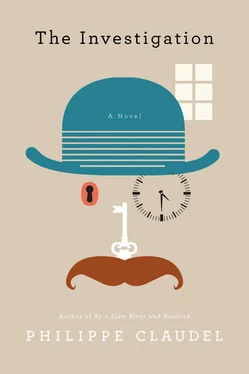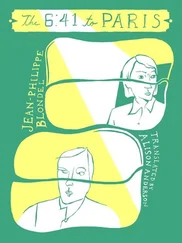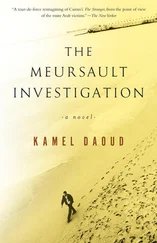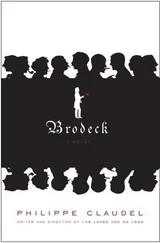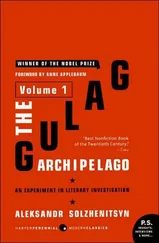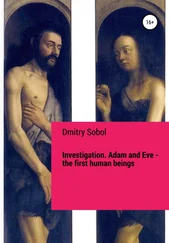Decidedly, the Waiting Room contained too much whiteness. Much too much whiteness. A world of whiteness, in which shapes as well as objects — all of them white as well — had a tendency to disappear: for example, the chair he was sitting on, the low table with the stack of magazines, the water fountain, and the pot that held the green plant, which had nothing green about it except its name (being itself totally white, with white leaves and white stems) and looked something like a large, bleached fern. After all, the Investigator thought, lingering for a moment over the plant’s strange aspect, albino rabbits exist, why not albino ferns? And the whiteness all around him, in even the smallest details and smallest objects in that room, transported him, as pure, solidified snow produces an impression of serene, rigorous, simple beauty endowed with the power to rest both eye and mind.
The Investigator closed his eyes and passed from white to black. He stayed like that, with his eyelids shut, for a long time, trying to cut himself off from the whiteness surrounding him; for he had the feeling that it might absorb him, dissolve him, make him disappear, if he let himself go. He made an effort not to think about it too much. Not to let himself go, that was it. Be the Investigator. Don’t forget to be the Investigator. Remain the Investigator. Keep being him, come what may.
He would no longer be surprised or dismayed by situations like the ones he’d been landing in for the past few days. After all, life is made up of impossible moments that come with no justification, are hard to interpret, and may not make any real sense. Life is nothing but a biological chaos one tries to organize and justify. But when the organization breaks down for some reason, whether because it’s eroded away, inappropriate, obsolete, or because the person in charge of it has resigned, one finds himself facing up to events, emotions, questions, impasses, and illuminations piled on top of one another like blocks of ice, all of different sizes, carried along by heavy avalanches, and deposited in the shape of a pyramid with broken sides, balancing in unstable equilibrium on the edge of a great precipice.
The Investigator opened his eyes again and concentrated on what he was holding with both hands: the envelope bearing the words TO THE FOUNDER. Now, here was something tangible and indubitable. The Investigator felt the force of the object, of the actual, palpable object, whose material was in contact with the cells of his skin and the nerve endings implanted there, which in a millionth of a second transmitted to his consciousness the proof of the object’s reality. This was nothing like some hypothetical doorbell that may have been rung or not! But why was he suddenly thinking about a doorbell?
He chased that thought away and picked up one of the magazines. There was neither a name nor a photograph on its glossy paper cover, which was blank and virgin white. He opened the magazine and flipped through it, increasingly nervous. Nothing. Every page was as milky-white as the cover. He took up a second magazine, then a third and a fourth, and finally went through them all. None of them contained a single printed character, the smallest illustration or photograph, or the tiniest drawing! They were all different from one another in format, thickness, or paper quality, but they were also all identical, because they all contained nothing! They were only gatherings of pages, pages whose whiteness was constant, uniform, monotonous. But the thing that most disturbed the Investigator, the thing that made him shivery and anxious, was that dozens, hundreds of fingers had leafed through those magazines, as demonstrated by the lower corners of the pages, which were dog-eared, crumpled, and sufficiently soiled to have gained an ivory patina. Those pages had been turned, or they’d been read.… If his eyes couldn’t make anything out, did that mean no one else’s could, either? Might he not be the victim of partial or selective blindness? Was it likely that anyone was printing, distributing, creating, or even imagining totally blank magazines? Magazines with no content? None whatsoever? And that people, whether idle, conditioned, or stupid, would read them all the same, spending their time and wearing out their eyes on pages empty of all information, of any text, of all photographs? What was to be gained from that? Yes, what could be the reason why individuals would devote time to reading what didn’t exist?
The Investigator again felt feverish, nervous, uneasy. He threw the last magazine on the floor and pulled the Psychologist’s envelope out from under his thigh.
TO THE FOUNDER. He reread the address three times. If he was reading it, that meant he had the ability to read it, and that it could be read. It followed, therefore, that those three words existed, written on the envelope. And it further followed that he was indeed able to read them and had not all at once — because of the shock of his collision with the wall, or because he’d abused his medications — become incapable of perceiving handwritten or printed characters. Wishing to be delivered from his doubts, without stopping to think, he ripped open the envelope and took out the sheet of paper the Psychologist had written on.
The paper was creamy white and folded in quarters, quite carefully; the Investigator could still see the traces of the Psychologist’s fingernails where he’d conscientiously pressed the edges of the folds. The Investigator unfolded the sheet of paper, looked at it, turned it over, turned it over again, and then started flipping it back and forth more and more violently, with trembling fingers. The sheet of paper was blank, dramatically blank, irremediably blank.
It bore no trace of ink, not a single word.
Nothing.
It was immaculate.
MANY WARS AND MANY OTHER, less extreme circumstances have tested man’s faculty of resistance, subjecting him to physical and mental trials whose ongoing refinement, from century to century, serves to demonstrate the human being’s capacity for surpassing himself in the imagination and execution of horror.
From simple drops of water falling one after another on a prisoner’s forehead to the Pear of Anguish, from torture with the boot, on the wheel, by drawing and quartering, by the inoculation of gangrene into healthy bodies, by the insertion of living rats into the vagina of a female victim, by the peremptory amputation of all four limbs, by the sun, to which one leaves the task of baking the skull of a naked creature buried up to the neck in desert sand, by slowly removing a hundred strips of flesh from a living body with a knife, by plunging a child into a tub of icy water so that the duration of its death agony may be accurately timed, by shocks of electricity, by inflicting upon a man the spectacle of his wife, his daughter, his son executed with a bullet in the back of the head, by the traditional and constant use of rape, by disemboweling, by prolonged detention in precarious conditions, by forced nudity intended as humiliation, by the blade, deliberately chosen for rust and dullness, that gradually slices through a victim’s throat, and by endless solitude, to the conviction planted in the victim’s mind that he himself is solely responsible for the situation he’s in and for the tortures being inflicted upon him, man has revealed himself to be not a wolf to man, despite the ancient saying — an old saw unfair to wolves, which are genuinely civilized and socialized creatures — but, more accurately, the anti-man, as physicists speak of antimatter.
Who wanted to destroy the Investigator, then? Who was it who was so determined to grind him down like a common grain of wheat and scatter the poor flour to the wind, never to return? Who, and why? For this was the conclusion he’d come to in the soundless privacy of the white room, a conclusion in the form of a double question. Well beyond his hunger and his thirst, well beyond time, whose passage he couldn’t — or could no longer — quantify, having had his nose rubbed in its irrefutable relativity, well beyond pure questions of identity — who was he, really? — the Investigator was gradually apprehending the void in which he floated and out of which he was made. Had he not himself become a portion of matter confronted with antimatter in expansion? Was he not progressing, swiftly or slowly, it made little difference, toward the black hole that was going to ingest him? Did someone — but who? who? — want to bring him face-to-face with a radical, definitive, metaphorical insight into his life, into human life in general?
Читать дальше
